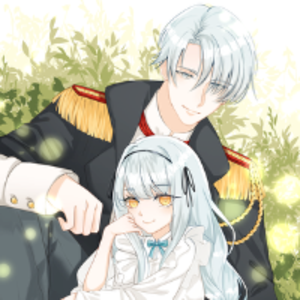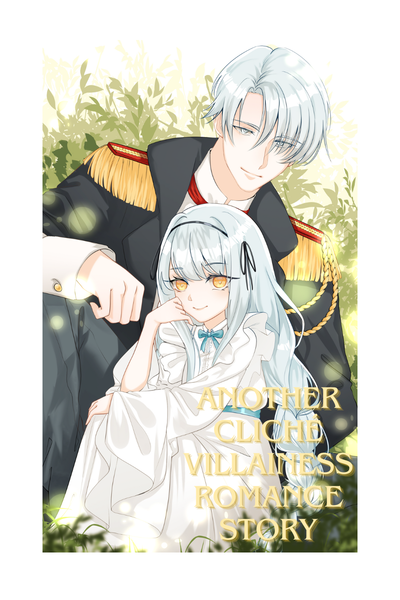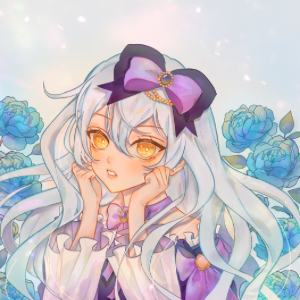Chapter 6 —Saints of No Sympathy
"Whoa," was the small whisper puff in the frozen air.
It was most unfortunate.
The duke's giant hand blocked my view of Marian's terror. In the crystalized room, where the air floated as visible droplets, Marian couldn't utter a single word. It was as if the air within her lungs had frozen, and her tongue was ladened with lead. I wanted to say, "Yeah. I don't know what she was doing either. To be fair, there probably wasn't much thinking happening in that overinflated head of hers."
I wanted to gloat. I wanted to soak in my victory. I wanted to boast of my cleverness from my successful scheme.
Like a true schemer, my timing was perfect.
The duke moved on a strict timetable. His days were structured, and his routines moved like clockwork. He was a gigantic stickler for punctuality and was known never to change his schedule once it was set—even if change was unavoidable. It's truly amazing how he's capable of being so self-disciplined (and self-centered); he almost doesn't seem human.
And I knew his routine. Some came in bits and pieces as I remembered more of the novel, and some from my clever detective work since my arrival.
I may have been low, but I hadn't taken the abuse Sienna dished out lying down; I've been scheming in my own right since arriving a month ago. But sadly, there's not much a child can do to thwart the evil plans of a conniving adult. You're powerless, trapped in a miniature body with an underdeveloped brain, unable to obtain any resources to fight a full-on war. And the only way to beat an adult is by utilizing another adult. Unfortunately, in my case, my only option was my ghost of a father. But he was truly an exalted saint in my eyes today.
“I-I-I…” Marian stuttered, no words coming to her. There wasn't a fast enough excuse she could use to smooth over her blunder; there wasn't a plausible way for her to deny the mistreatment the three men had witnessed.
"Your Grace," Polan, the duke's personal aide, interjected from behind his shoulder, "Her Ladyship is going to freeze to death at this rate."
I was thoroughly impressed by how well he articulated that sentence so clearly with how loud and violent his teeth were clacking. And to my surprise, the room began to rapidly thaw as the duke reigned in his aura and regained control of his emotions.
It was uncharacteristic for the duke to have such a violent outburst. He was a trained swordmaster and widely known to be an emotionless man. He was known to be as cold as ice, glimmering like gold, too perfect to be real. This statuesque of perfection made the empire herald the duke as upright and self-disciplined, and many admired him for his stoicism. He was revered in a way that inflated his oversized ego.
The unapproachable, stoic, manly man, perfect from head to toe, flawless in every way. Powerful, beautiful, incomprehensibly wealthy, the manifestation of the world's aspirations. (But, honestly, I think he needed to spend his funds on therapy, but no one ever asks me for my opinion).
Frankly, I'd lost interest in Marian once my rising body temperature began lulling me into a nap. It was satisfying enough to feel the rumbling anger vibrating against my ear, Marian's sobs, and pleas for forgiveness. The sound of her desperation rocked me like a gentle tide swaying me to and fro. I felt like a swaddled babe—comfortable, safe.
I didn't need to know the contents of the conversation to follow it. Marian would be severely punished for attempting to harm the ducal heir (and imperial candidate apparent), and I'll never have to see her again.
In Pastillia, harming an imperial candidate is considered treason because imperial candidates are legally seen as part of the imperial family until their trials have ended or they are disqualified.
It is a crime punishable by death.
Sadly, I am only a candidate apparent (because I am the only daughter the duke hasn't murdered and the only child Sienna couldn't get her hands on); therefore, I'm technically not part of the imperial family quite yet. I will remain solely as a ducal heir and won't be recognized as an imperial candidate until my coming-of-age ceremony, even though I am currently the only eligible candidate. It is quite unfortunate, but I couldn't circumvent the law this time.
Even if my place in this household was at the bottom of the totem pole, Marian would still be severely punished under the authority and protection of my surname. Although, tragically, death was not a typical punishment in this situation. It was more common to be whipped like a French meringue and fired without a recommendation letter, effectively ending a servant's career. But my hope is the duke was vain enough to behead Marian for me.
Many would see killing Marian as too severe of punishment, but that monster deserves it. Knowing the abuse Iris suffered under her hands made me feel almost gleeful that Marian would soon suffer her own horrors before her timely death. I don't know how Iris endured it for so many years. The month I spent with Marian was enough for me to plan her murder (I suppose figuratively and quite literally). And everything Marian had done so far was tame compared to the decade+ Iris endured.
Marian merely poisoned my meals, brought me iced mop water (the dedication we went through to chilled mop water in the middle of summer, though...) to wash my face, and rudely screamed at me every morning to get out of bed if she was too lazy to drag me out by the (literal) ear. On bad days, Marian berated me, but Iris suffered much, much more than that.
Iris bore scars from Marian's sadism and the cruelty of Marian's satisfactory merriment after starving and striking Iris. Iris was treated worse than a maid—worse than a stable boy. Iris came close to death more than once thanks to Marian until being on death's doorstep was all Iris knew. As she grew older, Iris was demeaned to the point of doing the maids' work while they gossiped and watched because she didn't exist in that household. She was a blight, one forced out of sight, out of mind. Someone to be forgotten about and neglect.
Iris was a slave dressed in the costume of a noble lady.
I don't blame Iris for becoming the villainess she grew up to be. She genuinely had no choice. How could she have grown up becoming any different?
"Take her to the dungeons. I'll deal with her myself later."
I don't remember much after hearing the duke commanding the guards to haul the screaming Marian away. It all became a warm, hazy feeling, like being wrapped in bundled sun-drenched cotton balls on a chilly fall day. It felt nice. I hadn't felt so warm and safe since coming to the estate. I wish that feeling stayed.
But I knew it wouldn't.
As I drifted off to sleep, parts of the novel I'd forgotten resurfaced. It was like experiencing the duke's aura sparked parts of my memory and brought forth hidden information that had been tucked away in forgotten files. There was another reason the ducal houses held so much power within the empire.
Elemental affinity.
The four ducal houses each had an affinity towards various elements that cemented their image like a mascot to a sports team. The ducal houses are known as Orzo of the Northern Winter (water), Fusilli of the Eastern Spring (earth), Gomiti of the Southern Summer (fire), and Ditalini of the Western Fall (wind).
Although it isn't uncommon to have elemental powers among people within the empire, it was still rare enough to be coveted. And like all good fantasy stories go, most (read 99.7%) of the ducal descendants become elemental aura users or attribute mages.
Attribute mages are rarer than elemental aura users, so they naturally recieve preferential treatment (elemental mages, aka elementalists, are those blessed by nature and form contracts with nature spirits. Attribute mages are mages with a specific elemental affinity. And, yes, this be will be the quiz). But roughly 1 out of every 50 children are unfortunate, powerless, ordinary ducal children.
Iris was one of those unfortunate, powerless, normal ducal children.
It truly was unfortunate. It was almost like the universe played a cruel joke on her; maybe the gods hated her, too.
Because Iris was powerless from beginning to end.
Even though she had all the hallmarks of great power and a bearer of great responsibility, Iris never wielded any greatness.
Iris was never a water mage (water mages are also ice wielders) or an ice aura user (ice aura user cannnot manipulate water. I don't know. I didn't make the rules), nor could she form contracts with elemental spirits; she couldn't even use the mysterious powers her eyes supposedly held.
Useless.
That was the word Iris had heard most in her life.
Because she committed the crime of being born a girl, she was condemned. Because she was 1 out of the 50 children born without any affinity to magic, she was useless. Because she couldn't use the goddess's blessing, she was worthless.
The more I remember the story, the more upset I become. It felt so unfair that someone had to grow up so tragically and then die so young because she wanted to be loved for once in her life.
Was that so wrong?
Was it wrong of her to seek affection when she had experienced none? Was it wrong that she wanted something everyone else had? Why is it that Veronica had the entire empire at her feet, loving and adoring her every blink and breath, but condemned Iris and hung her out on a stake like a witch? What was so different between the two?
Did Iris not deserve love, too? Was she only a plot device for the perfectly perfect, angelic Veronica? Did all Iris ever amount to was being Veronica's anthesis meant to highlight her loveliness and saint-like existence? Was Iris only ever meant to be an example of "you should always make the right choice?"
Why was it wrong for Iris to seek love when Veronica did the same? Why was Veronica's tragic childhood of more significance than mine? What was so different between us that the world demonized one and exalted the other?
What if there was no such thing as a "right choice?"
Did I ask for too much? Did I expect too much?
What if Veronica had been the one to poison me? Would the love all of those people gave her disappear? Would they have loved me as they did her? Or would they continue down the same path of adoration for the patron saint of pretty lies?
Because what was it? We were so similar in so many ways, yet somehow, our lives turned out so drastically different.
"Why not me?"
"Why not you, what?"
A deep voice jolted me awake. Disoriented, I spun my head from left to right, right to left, left to right, until the room blurred into one golden white light.
"You're going to make yourself sick, Stella."
A cool hand brushed against my clammy forehead and moved the sticky blue strands away from my eyes. I felt their fingers tuck my hair behind my ears tenderly, almost as if they were maneuvering small, delicate confetti paper with tweezers.
"My name isn't Stella," my groggy voice declared to the phantom hand. My eyes were shut now that I was lying down again. The world felt like it was moving by without me, making me seasick. And the fact that a rando had me mistaken for someone else was disconcerting.
"You're just like her."
"WHAT. WHO."
Cold fear drenched me. Disoriented, I irrationally concluded that the person was comparing me to Veronica. And I was ready to fight. No way in hell was I going to be compared to a conniving little—
I threw the covers off my drenched nightgown and rolled myself onto my side to glare at this faceless offender. I wasn't quite sure why I was so livid, but I was beyond peeved. Perhaps I was hungry, or maybe it was because I didn't feel well—perhaps both.
What—who I found perched on the side of my pink bed was a surprise. It was Duke Orzo in perfectly pressed slacks and a crisp white shirt. Strangely, he looked tired. His eyes looked sunken; pencil mark lines decorated the skin behind his glasses. His cravat was haphazardly out of place: one end tucked, the other flopping over like a long-eared puppy against his spotless shirt.
"Your mother," my phantom father smirked at me.
"Wut."
You have got to be sh—











Comments (2)
See all